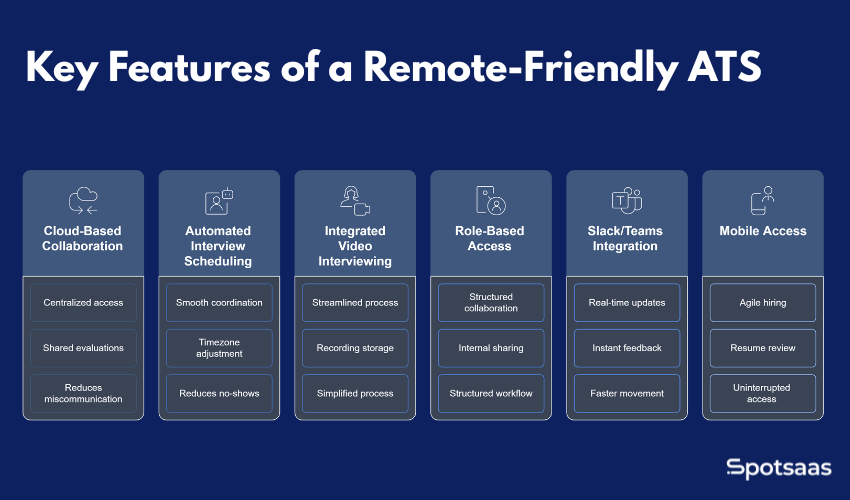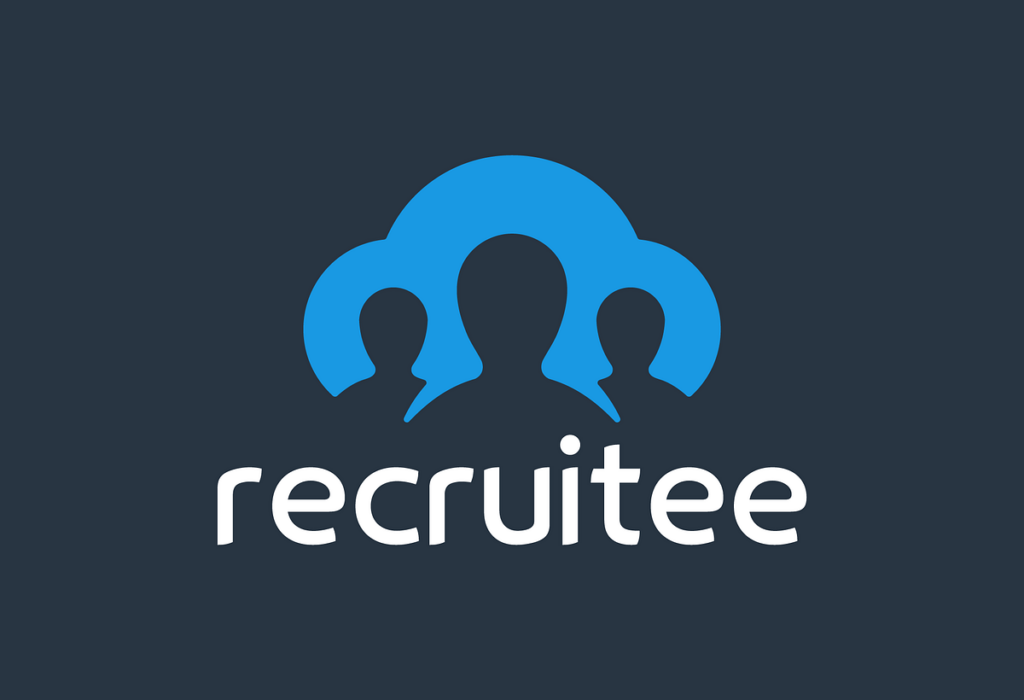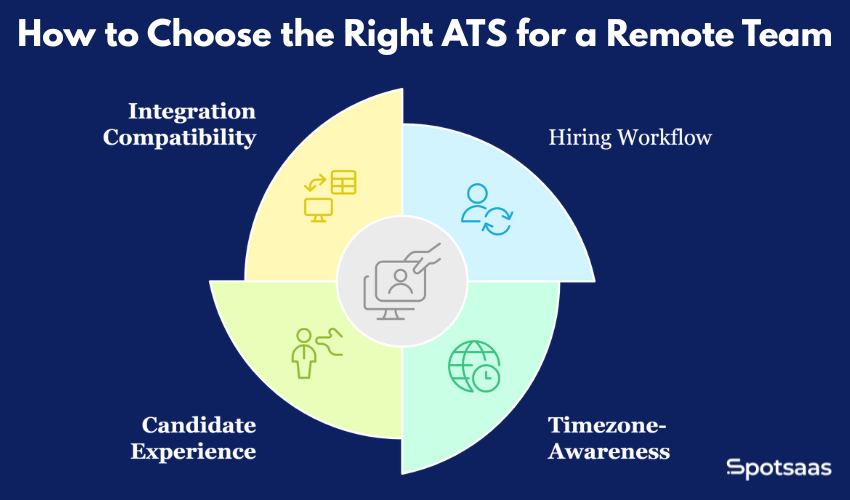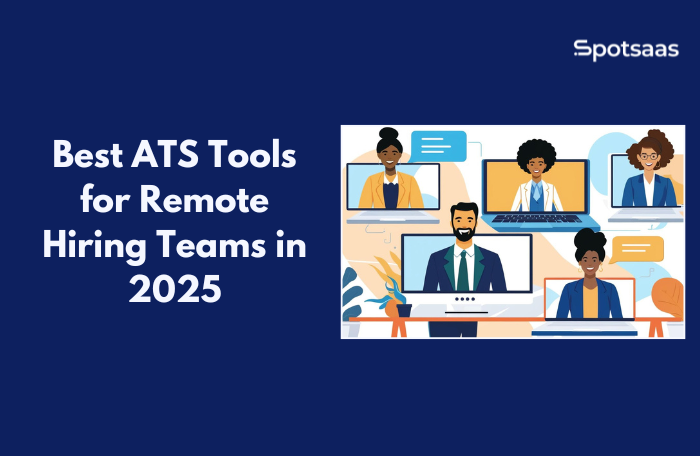Remote hiring isn’t just a trend—it’s become a core strategy for companies looking to tap into a wider talent pool. Whether it’s a fully remote team or a hybrid setup, hiring across locations introduces new challenges. Coordinating across time zones, managing interviews without endless back-and-forth, and ensuring every candidate has a smooth experience can quickly become overwhelming.
That’s where Applicant Tracking Systems (ATS) designed for remote teams step in. These platforms bring structure and clarity to the hiring process by centralizing communication, automating scheduling, and giving recruiters and hiring managers the tools to work together, no matter where they are.
With the right ATS, remote teams can move faster, stay aligned, and offer a more professional hiring experience from the first touchpoint to the final offer.
What This Blog Includes
This guide is designed to help remote hiring teams find the right applicant tracking software based on real needs, not just feature checklists. Here’s what you’ll find inside:
- A quick explanation of who benefits most from remote-friendly ATS tools
- Key features to look for when evaluating platforms
- A curated list of the best ATS tools for remote teams in 2025
- A side-by-side comparison table for faster decision-making
- Practical tips on how to choose the right ATS
Who Needs Remote-Friendly ATS Software?
The need for a remote-friendly ATS isn’t limited to one type of company. As teams grow beyond office walls, the demand for flexible hiring solutions grows.
- HR managers and recruiters in remote or hybrid companies rely on a system that helps them coordinate hiring efforts without chasing updates through emails or spreadsheets. When the hiring panel is spread across locations, alignment is key, and that’s where a good ATS makes all the difference.
- Startups hiring across time zones often need to move quickly. They can’t afford to lose candidates to slow coordination or scheduling conflicts. A cloud-based ATS helps them keep the hiring pipeline moving, even when teams are working in different parts of the world.
- Fast-scaling companies with distributed hiring panels need structure. As more team members get involved in hiring, it’s essential to maintain consistency and visibility across the process. An ATS helps standardize workflows while keeping collaboration smooth.
- Recruitment agencies working with remote clients benefit from a centralized tool that streamlines job postings, applications, and communication. It helps them deliver results faster while offering a better experience for both clients and candidates.
Key Features to Look For in a Remote-Friendly ATS
For remote teams, hiring isn’t just about filling roles—it’s about staying connected, making timely decisions, and offering a consistent experience no matter where the candidate or team is located. That’s why choosing an ATS with the right features is critical. Below are the must-have features to prioritize if you’re hiring remotely in 2025:

Cloud-Based Collaboration
Remote teams rely heavily on tools that support real-time collaboration without requiring people to be online simultaneously. A cloud-based ATS keeps everyone—recruiters, hiring managers, and interviewers—on the same page. It enables:
- Instant updates on candidate progress
- Shared comments and evaluations
- Centralized access to candidate profiles and resumes
- Consistent workflows regardless of team location
This not only saves time but also reduces miscommunication during key hiring moments.
Automated Interview Scheduling with Timezone Support
Time zones are one of the most common pain points in remote hiring. A strong ATS helps automate scheduling by:
- Syncing with Google or Outlook calendars
- Offering self-scheduling links to candidates
- Automatically adjusting for each participant’s time zone
- Sending reminders to reduce no-shows
This makes interview coordination smoother and keeps the process moving without delays.
Integrated Video Interviewing
Video is the default format for remote interviews. An ATS that supports video interviewing (either natively or via integration with tools like Zoom, Google Meet, or Microsoft Teams) brings everything under one roof. This feature allows:
- One-click access to video calls
- Recording and storing interviews for later review
- Structured interview workflows with scorecards and notes
- Seamless transition from screening to final rounds
It also simplifies the process for candidates, who don’t need to jump between platforms.
Role-Based Access and Team Notes
Hiring usually involves multiple stakeholders—recruiters, department heads, and sometimes executive leadership. With role-based access:
- Each team member only sees what they need to
- Confidentiality is maintained across departments
- Notes and comments can be shared internally
- Collaboration becomes more structured and actionable
This ensures hiring teams work efficiently without creating noise or confusion.
Slack or Microsoft Teams Integration
Many remote-first teams rely on tools like Slack or Teams for daily communication. When your ATS integrates with these platforms, you can:
- Get real-time alerts for new applications or interview updates
- Share candidate profiles within a channel
- Collect instant feedback from team members
- Move faster without switching tabs or logging in repeatedly
This keeps hiring conversations close to where work is already happening.
Mobile Access for On-the-Go Hiring
In a remote environment, not every decision happens at a desk. With mobile access, recruiters and decision-makers can:
- Review resumes while traveling
- Approve candidates from their phones
- Leave comments and ratings instantly
- Respond quickly to scheduling needs or status updates
A mobile-friendly ATS helps keep hiring agile, responsive, and uninterrupted—even outside work hours.
Top ATS Tools for Remote Hiring in 2025
Finding the right ATS for a remote team means looking beyond the basics. You need a system that’s flexible, easy to use, and built for collaboration across time zones. Below are some of the top tools in 2025 that check those boxes and more.
1. Breezy HR

Breezy HR is built with remote hiring in mind. From video interviews to automated scheduling, the platform helps remote teams stay organized without getting overwhelmed. It also includes a drag-and-drop pipeline, scorecards, and role-based access, making it a favorite among fast-moving startups.
Key Features
| Feature | What It Helps With |
|---|---|
| Visual Hiring Pipeline | Track candidate progress in real-time with a drag-and-drop interface. |
| Video Interviewing | Host interviews within the platform and collect structured feedback. |
| Self-Scheduling | Allow candidates to book interviews based on your team’s availability. |
| Collaboration Tools | Share notes, assign tasks, and align hiring teams from any location. |
| Tool Integrations | Connect with Slack, Google Workspace, Zoom, and top job boards. |
Why It Works for Remote Teams
Breezy HR makes hiring feel connected, even when your team isn’t. Everyone involved in the process can leave feedback, schedule interviews, and view candidate progress in real-time, no matter where they’re located. It eliminates the typical friction points of remote collaboration and keeps everything organized and visible from one central dashboard.
Pricing
Breezy HR pricing offers the following plans
- Free Plan – Includes basic tools for simple hiring needs
- Startup Plan – Starts at $189/month (billed annually), includes automation and collaboration tools
- Growth & Business Plans – Custom pricing for larger teams and advanced features
Free Trial
14-day free trial with full access to core features.
Pros & Cons
| Pros | Cons |
|---|---|
|
|
2. Workable

Workable
- Spot Score 9.6
- Best For: Small to Mid-Sized Business
- Pricing: Starts from 169/month
Workable is a powerful applicant tracking system designed to support growing teams with global hiring needs. From AI-powered sourcing to one-click job board posting and automated scheduling, Workable helps companies streamline recruitment while keeping hiring teams connected—no matter where they’re working from.
Key Features
| Feature | What It Helps With |
|---|---|
| One-Click Job Posting | Publish openings across 200+ job boards from a single dashboard. |
| AI Candidate Sourcing | Use AI to find and recommend top candidates based on job descriptions. |
| Video Interviewing | Host interviews directly in-platform with feedback and rating tools. |
| Calendar & Timezone Sync | Automatically adjust interview scheduling based on each user’s timezone. |
| Team Collaboration | Collect feedback with interview kits, shared notes, and Slack integration. |
Why It Works for Remote Teams
Workable’s built-in scheduling, video interviewing, and global job board access make it a solid choice for remote hiring. It simplifies sourcing, shortlisting, and interview coordination—especially when hiring managers are spread across locations. Its collaborative workflows help everyone stay aligned while keeping the process moving quickly.
Pricing
Workable pricing offers various plans
- Paygo Plan – Starts at $149/month (billed monthly), includes one active job slot and core features
- Standard Plan – Based on team size, includes unlimited job slots and automation tools
- Premier Plan – Custom pricing for advanced analytics, SSO, and API access
Free Trial
A 15-day free trial is available with access to most features.
Pros & Cons
| Pros | Cons |
|---|---|
|
|
3. Recruitee

Recruitee
- Spot Score 9.3
- Best For: Collaborative hiring teams and growing businesses
- Pricing: Starts from 270/month
Recruitee is built to streamline hiring for teams that thrive on collaboration. Its clean, intuitive interface makes it easy for remote recruiters and hiring managers to work together—from job creation to candidate evaluation.
It’s ideal for businesses that want visibility across all hiring stages, while still maintaining flexibility in how each role is handled. With automation, integrated scheduling, and robust communication tools, Recruitee helps remote teams stay aligned and efficient.
Key Features
| Feature | What It Helps With |
|---|---|
| Custom Hiring Pipelines | Visualize and control each hiring stage for different roles and teams. |
| Role-Based Access | Control what each team member sees and contributes in the hiring process. |
| Collaborative Tools | Share notes, assign tasks, and collect structured feedback across teams. |
| Automated Scheduling | Let candidates schedule interviews based on availability, with timezone support. |
| Multi-Channel Job Posting | Post jobs to multiple boards and manage responses in one central dashboard. |
Why It Works for Remote Teams
Recruitee is designed to facilitate collaborative hiring, even when your team isn’t in the same room. With tools for shared decision-making, real-time feedback, and automated scheduling, it helps teams communicate clearly and stay in sync throughout the hiring journey. Whether you’re a remote startup or a growing organization, Recruitee scales with your needs.
Pricing
Recruitee pricing offers the following plans
- Start Plan – Starts at $270/month (billed annually), ideal for smaller teams
- Grow Plan – Starts at $343/month, includes advanced analytics, workflows, and custom roles
- Optimize Plan – Custom pricing for enterprises with high-volume hiring needs
Free Trial
18-day free trial with access to core features and integrations.
Pros & Cons
| Pros | Cons |
|---|---|
|
|
4. Ashby

Ashby
- Spot Score – 8
- Best For: High-growth startups and scaling teams seeking AI-powered automation
- Pricing: Starts from $360/month
Ashby is an all-in-one recruiting platform designed to streamline the hiring process for modern teams. With features like AI-assisted application review, customizable workflows, and advanced analytics, Ashby empowers teams to make data-driven hiring decisions efficiently. Its intuitive interface and automation capabilities make it a suitable choice for organizations aiming to enhance their recruitment strategies.
Key Features
| Feature | What It Helps With |
|---|---|
| AI-Assisted Application Review | Streamlines the screening process by highlighting top candidates based on predefined criteria. |
| Customizable Workflows | Allows teams to tailor the recruitment process to fit their unique hiring needs. |
| Advanced Analytics | Provides insights into hiring metrics to inform strategic decisions. |
| Integrated Scheduling | Facilitates interview coordination with calendar integrations and timezone support. |
| Collaborative Tools | Enables team collaboration through shared notes, feedback, and role-based access. |
Why It Works for Remote Teams
The cloud-based platform of Ashby is designed to support distributed teams. Its collaborative features, such as shared feedback and role-based access, ensure that team members can work together seamlessly, regardless of location. The integrated scheduling tool, with timezone support, simplifies coordinating interviews across different regions.
Moreover, the AI-assisted application review helps teams efficiently manage high volumes of applications, a common challenge in remote hiring scenarios.
Pricing
Ashby Pricing offers the following pricing plan
- Foundations Plan – Starts at $360/month for up to 10 employees.
- Plus Plan – Custom pricing for 101–1000 employees.
- Enterprise Plan – Custom pricing for organizations with over 1000 employees.
Pricing is based on company size, usage, and commitment, with discounts available for annual commitments.
Pros & Cons
| Pros | Cons |
|---|---|
|
|
Quick Comparison Table
| Tool | Best For | Starting Price | Free Trial | Collaboration Features |
|---|---|---|---|---|
| Breezy HR | SMBs and startups | $157/month | 14 days | Scorecards, task assignments, Slack integration |
| Workable | Scaling teams, global hiring | $149/month | 15 days | Interview kits, notes, calendar sync, Slack |
| Recruitee | Team-based hiring workflows | $269/month | 18 days | Shared notes, role-based access, flexible pipelines |
| Ashby | Data-driven, fast-growing companies | $360/month | No | Advanced permissions, shared feedback, automation |
How to Choose the Right ATS for a Remote Team
Finding the right ATS isn’t just about ticking off features—it’s about aligning the tool with how your team actually works, especially in a remote environment. Here’s what to focus on:

Define Your Hiring Workflow
Start by identifying whether your hiring process is synchronous (real-time interviews and live collaboration) or asynchronous (distributed reviews, recorded interviews, time-shifted decisions). Some ATS platforms are better suited for async communication, offering tools like shared scorecards, comment threads, and workflow visibility—ideal for globally distributed teams.
Look for Timezone-Awareness and Automation
If your team or candidates span multiple time zones, choose an ATS that handles scheduling smartly. Features like timezone detection, calendar syncing, and candidate self-scheduling reduce delays and manual coordination. Bonus points for automation that handles reminders, follow-ups, and interview kit sharing without manual effort.
Prioritize Candidate Experience
Remote candidates often form their first impression of your company through the hiring software. A clean, mobile-friendly application process, timely communication, and a seamless interview experience can make a big difference. Look for ATS platforms that support branded career pages, automated messages, and smooth interview workflows—these small touches enhance your reputation.
Check Integration Compatibility
Your ATS should play well with the tools your team already uses. Look for integrations with:
- Video conferencing platforms (Zoom, Google Meet, Microsoft Teams)
- Calendar tools (Google Calendar, Outlook)
- Communication platforms (Slack, Microsoft Teams)
- Job boards (LinkedIn, Indeed, niche sites)
The more your ATS connects with existing workflows, the less time your team spends switching tools or updating information manually.
Conclusion
As remote work becomes the norm for growing teams, having the right applicant tracking system in place is no longer optional—it’s essential. The right ATS doesn’t just organize your hiring process; it empowers your team to work smarter, stay aligned, and create a consistent candidate experience, no matter where people are located.
Evaluate your remote hiring needs, map them to your workflow, and explore the tools that best fit your goals. Whether you’re scaling fast or building a distributed hiring team from the ground up, the right software can make all the difference.
Frequently Asked Questions
What is an ATS, and why is it important for remote hiring?
An ATS (Applicant Tracking System) helps manage job applications, streamline hiring workflows, and improve coordination across remote teams.
Which ATS tools work best for distributed teams?
Tools like Breezy HR, Workable, Recruitee, and Ashby offer features designed specifically for remote collaboration and scheduling.
Can I conduct video interviews directly from an ATS?
Yes, many ATS platforms include built-in video tools or integrate with Zoom, Google Meet, and Microsoft Teams.
Do ATS platforms support timezone-based scheduling?
Most modern ATS tools support automatic timezone detection and syncing with calendars to avoid interview conflicts.
Is it possible to customize workflows for different roles or teams?
Yes, top ATS platforms allow customizable hiring pipelines to match the needs of various departments or job types.





